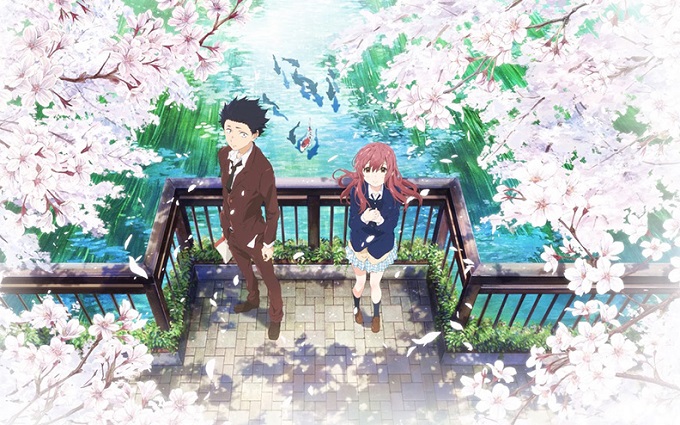A Silent Voice Review

The Plot
A young hearing impaired girl Nishimiya Shoko transfers to a new elementary school but struggles to win the acceptance of her increasingly unkind classmates. Some years later the boy primarily responsible for her bullying Ishida Shouya is dealing with his own loneliness and crippling guilt, setting the pair on an unlikely path towards friendship and forgiveness.
The Good
A Silent Voice deals delicately with important and powerful themes that speak to a truly global audience. With time and sincere care the film explores the emotional complexities of both bullying and disability. Both issues are in truth tackled far too rarely on screen and the film is laudably ambitious in dealing with both simultaneously.
With the aid of a diverse cast of characters surrounding the central paring of Nishimiya and Ishida, the film captures a detailed portrait of the wide ranging impact the stigma of both bullying and disability can have on victims, perpetrators and bystanders.
In particular the film deserves considerable praise for the unflinching way it captures the perhaps surprising parallels between Nishimiya and Ishida’s experiences. The film manages to illustrate the ugly pains and frustrating isolations they both endure without allowing either character to be solely defined by them.
Though the film is frequently punctuated by moments of pain and grief it also balances this with humour, affection and elegant visuals. While generally tending towards a more realistic style of animation the film does take advantage of a more playful and cartoonish approach to certain characters and scenes to add some much needed joy.
It’s simply hard to imagine a better piece of cinematic evidence for the unique capacity and advantages of using animation for sophisticated emotional storytelling. Watching this film will powerfully illustrate why Japan uses animation as a preferred medium for all genres of cinema, not just the more stereotypical examples of giant robots and fighting ninjas.
The Bad
Those unfamiliar with the unique nuances of Japanese culture and its emotional mind-set may find elements of the characters behaviour a little harder to understand at times and psychologically draining to watch. Even by the standards of western melodrama, the Japanese penchant for relentless self-recrimination accompanied by wailing tears and throwing oneself to the ground in prostrate apology may seem almost excessively hysterical.
Though A Silent Voice explores legitimately heart-breaking subject matter, non-Japanese audiences may find their sadness gives way to possible frustration, particularly during the later stages of the film’s lengthy 2 hour and 10 minute run time.
The apparent absence of a much needed calming and sensible adult intervention is increasingly hard to ignore. Likewise it’s exponentially agonising to find so many of the characters unable to merely move beyond their past mistakes and embrace their newfound happiness. However it may be that this is partly a flaw in adolescence rather than just a criticism of this specific story.
The Ugly Truth
A Silent Voice is an exquisitely animated piece of unashamedly poignant melodrama. It is by equal turns tragic, romantic, humorous, sincere and ultimately uplifting. The film represents some of the very finest elements of Anime that may have a particularly surprising impact on those just discovering the true range and depth of Japanese animation.
Review by Russell Nelson